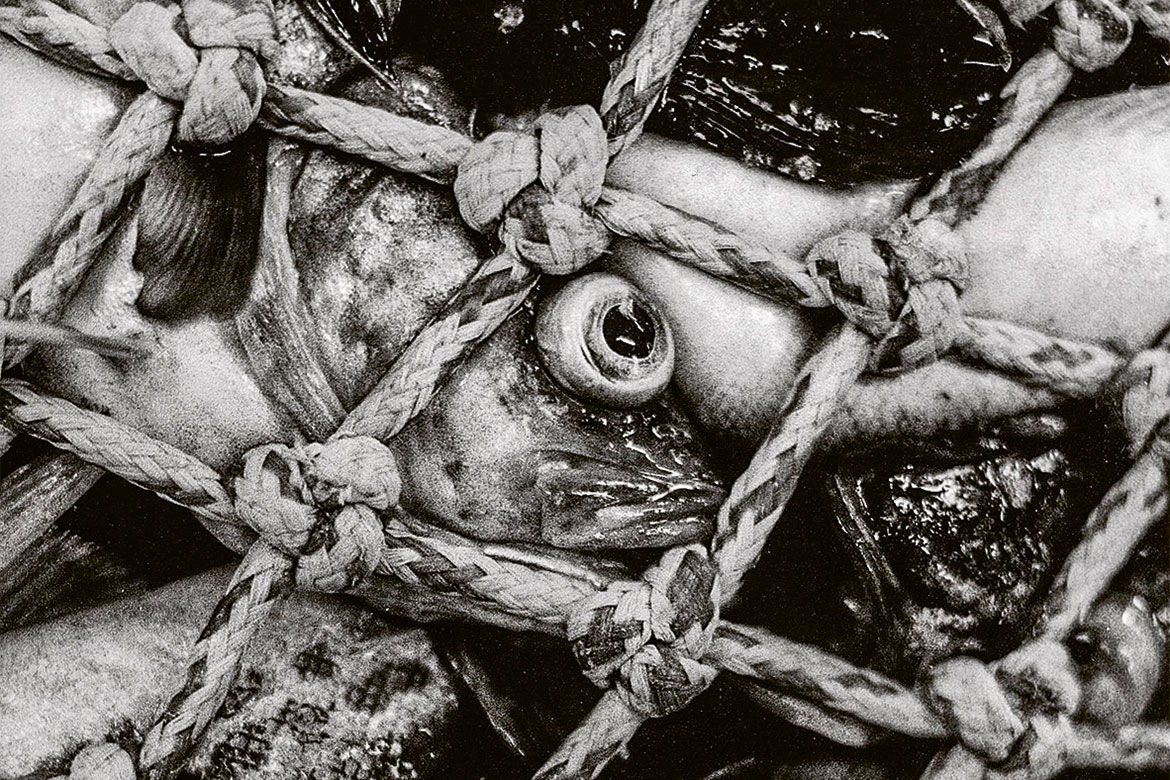OCEAN MODELLING
Fish under pressure
Marine heat waves exert shocks on already fragile resources. However, their frequency will increase as a result of global warming.

It’s not just fishing that’s having an impact on fish stocks. Every year, global warming pushes fish six kilometres further towards the poles – which in turn is a threat to the fishing industry. | Image: Theodor Barth/laif
In the future, there will probably be fewer fish in the seas than expected. The fault lies with marine heat waves – episodes of sea heat, such as the one nicknamed ‘the Blob’, which occurred between 2013 and 2015 off the west coast of North America.
Until recently, their impact on marine fish was not well known. But in a recent study, Thomas Frölicher, a specialist in ocean modelling at the University of Bern, has just shown that these heat waves exert significant shocks on fish already affected by long-term climate change. He warns: “If we also take into account these heat waves, we can imagine that the impact by 2050 on the most heavily fished species could be twice as great as previously estimated”.
Immediately visible consequences
To achieve this result, Frölicher used the complex Earth system model to simulate the impact of heat waves on fish, and applied it to species belonging to the large marine ecosystems of the North-East Pacific. He showed that with each episode, some fish species saw their biomass fall, sometimes by as much as 20 percent. More than two thirds of the animals moved to higher latitudes, sometimes up to 30 kilometres from their usual range. “We were surprised by the speed of these changes, the consequences of which were visible within a year. They are four times faster and larger than the average ten-year changes of the 21st century”, he says.
The problem is that these changes are expected to become even more marked with the increase in the intensity, duration and extent of heat waves in relation to global warming – not to mention their frequency, which has doubled over the last 40 years. But if ecosystems do not have time to regenerate between two events, they could suffer irreversible damage, says Frölicher.
This is all the more important, as heat waves are not the only threat to marine resources. We need to take further account of ocean acidification, deoxygenation, changes in ocean currents and salinity, which are also caused by global warming. Then there’s overfishing, which is linked to the increase in fish consumption, ocean pollution, and the destruction of marine habitats.
The need for an adapted response
But endangered marine resources also mean endangered human populations. Billions of people depend on fishing, either as a source of income or as a source of food. Adaptation will be necessary. In the short term, it will relate to the geolocation of fish stocks. A Franco-American study has just shown that global warming means marine species are moving towards the poles by an average of six kilometres per year. But in the long term, adaptation will be necessary to ensure the renewal of stocks.
This can only be achieved through sustainable fisheries, warns the WWF, which lists in its recommendations: sustainable and adaptive management of fish stocks, reduction of by-catches, consumption of fish from lower trophic levels, and a transition to more sustainable aquaculture. However, Catherine Vogler, who heads the seafood markets team, adds a caveat: “These measures only make sense if the causes of climate change are themselves addressed in tandem with the protection and restoration of marine ecosystems, which is one of the most effective ways of combating the devastating effects of climate change”.




